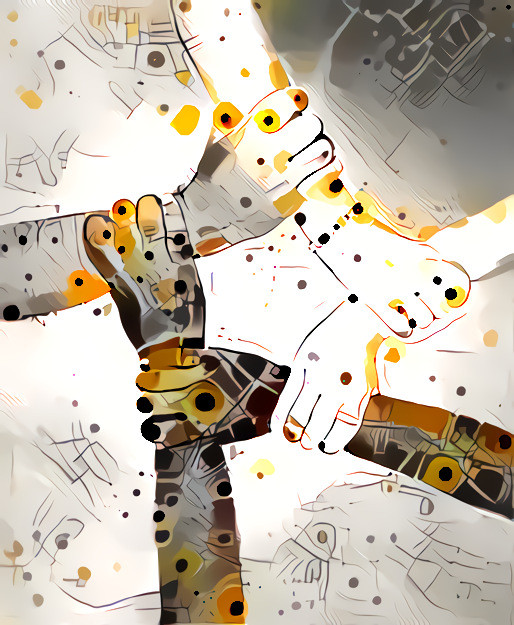
As soon as you wake up in the morning, how quickly do you go check your devices?
Whether it is our computer, phone, tablet, or our Amazon “Alexa,” we integrate these devices into our daily lives. In many schools, these technologies begin to replace traditional forms of learning and teaching. They offer many services to us and we would be at detriment if they were removed from our lives. After all, it’s much easier to look up something on the internet than to travel to your local library and search through thousands of books.
It’s understandable that when billions of people use these services, there’d be a cost for both the manufacturing and maintenance of technology. In order to compensate for these costs, internet advertising is now a thriving business that opens the doors for free websites, games, and services. However, like every profitable resource, many will exploit its uses. We see this in menial forms such as the YouTube suggestions bar, the recommended searches on Google, and targeted advertising.
Behind these facades, though, lies an eerie and underestimated danger.
Vast neural networks and algorithms track your every move
Let’s say you are interested in cooking Asian cuisine. It is likely, that after a little while, you will soon get ads for Asian cuisine cookbooks or restaurants. If you type in “Asian” in your search bar, you are more likely to find results about food rather than Asian history. Google has tracked your searches and has sold your hobby to companies to exploit and target your interests. Although these neural networks help us find what we are looking for, oftentimes this targeting distracts and misleads us by triggering our deepest, subconscious desires.
Albeit strange, this is not as bad as social media networks such as Facebook or Twitter. These websites are where you describe your entire day-to-day life. You post pictures of yourself, you discuss your opinions, and you talk to others. You try not to think that a random “Joe Schmoe” could create a near perfect compendium of your entire life from the moment you signed on and made your first post.
That’s not possible. . . or is it?
These social media sites use incredibly complex machine learning robots and algorithms to create a virtual “echo chamber” for you to reside in. It’ll learn what political party you associate with, what your opinions are on certain topics, on top of all the subtle details like your age and name. After this, these algorithms will design a world just for you, an environment of like minded people that will always agree with you. In this world, you will always be “happy,” and never have to face the “wrong” people, or the “bad” people.
Great! We are able to communicate with people that share our interests, and now we don’t have to stress out about all this arguing. However, this environment is a double edged sword; living within your own little bubble keeps you close-minded and doesn’t introduce you to new ideas and points of view.
Living within your bubble on the internet is incredibly unrealistic in the real world.
With technology you can pick and choose who you get to talk to and meet. However, you can’t just “leave the server” in real life, or “block” your enemies.
In the modern world, we sometimes try to copy what we do on the internet in real life. We forget how to overcome these challenges of having to deal with those who share different opinions or affiliations. However, by learning to compromise and keep an open mind and ear to their opinions we grow as a person, and we break out of the bubble that we have grown so comfortable to.
What are methods to escape from the comfortable social media bubble?
We should first identify why we go to social media so often. Here are a few examples:
- We use it because we have self-esteem issues. Getting likes and attention is a crutch for us.
- We use it to argue with others or to validate our own beliefs.
- We use it as a distraction or an escape from real life problems. It is procrastination from the obstacles we must face.
There is never a “common reason” for this, so it is up to each person to identify their necessity for social media.
Use less social media
Unplugging is an excellent way to discover the contrast and the potential of living a life free from online fighting and debating. The less you are exposed to those who are sick, the less likely you are to get sick yourself. It is also necessary we venture out of our comfort zone.
Of course, unplugging is easier said than done and requires patience and persistence. In order to authentically unplug from social media, you have to observe how it makes you unhappy. The next time you get on your phone, notice how your brain fogs up or distracts itself. Then, you can find alternatives such as hanging with friends in real life, reading books, or meditation.
Converse, debate, befriend those who have different opinions.
Don’t just turn your head away from their points and ideas either. You must listen and review their ideas, while also think about yours.
Lastly, question your own opinions. Knowledge is fluid, but truth is rigid.
Does learning about other perspectives make you question yours? Truth does not change; it is your understanding, your perspective of the truth that changes. In our never-ending quest to find the truth, we expand our knowledge, our outlook in life, and our sense of self.
Our guest author Jonathan Moers wrote this article.
Did you like his writing? Have any questions or comments about this post? Would you like more of his work? Share your insights with us!
